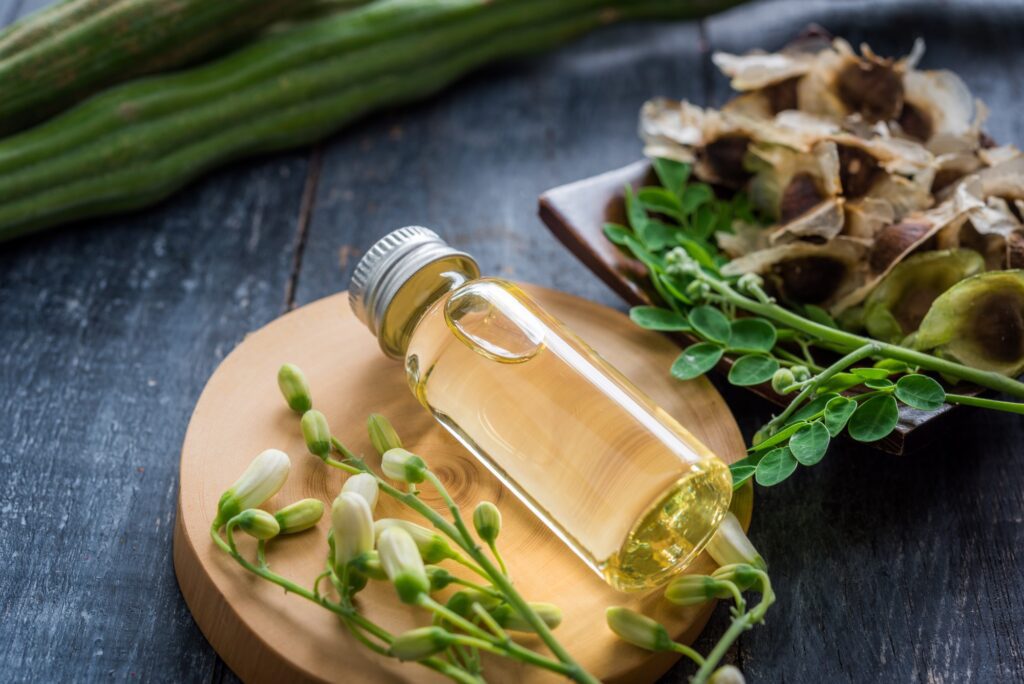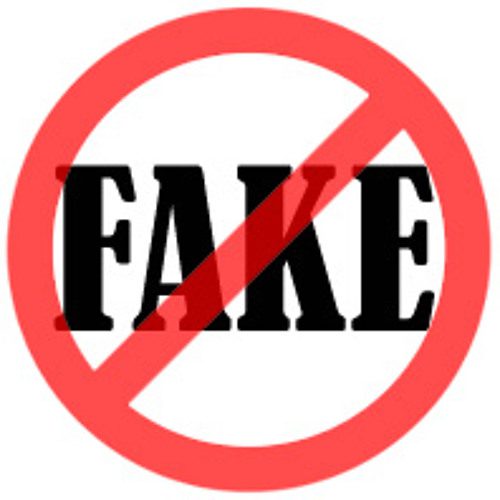
How to Identify Real vs Fake Moringa Products in the Market
Moringa is known as the “miracle tree” for good reason. It’s packed with antioxidants, vitamins, and minerals that support immunity, skin health, digestion, and more. But as demand for moringa grows, so does the number of counterfeit or low-quality products in the market. If you’re buying moringa for its health benefits, it’s crucial to know how to tell the real from the fake.
In this guide, you’ll learn how to identify authentic moringa products, avoid common scams, and make sure you’re getting the nutrition you’re paying for.

Why You Should Care About Real Moringa Products
Why It’s Important to Spot Fake Moringa
With the surge in global wellness trends, moringa has become a staple in health stores, online shops, and even local supermarkets. It’s hailed as a superfood — and for good reason. But this rising demand has opened the floodgates for a wave of counterfeit, low-quality, and adulterated moringa products that don’t deliver on their promises.
If you’re investing in moringa for its many benefits — from boosting immunity and reducing inflammation to supporting metabolism — then it’s crucial to ensure the product is genuine. A fake product not only wastes your money but could also harm your health in the long run. This is not just about “good vs bad,” it’s about safe vs unsafe.
Let’s look at why identifying real moringa is more important today than ever:
1. Health Risks of Contaminated or Diluted Moringa: Fake moringa products may contain harmful fillers, synthetic dyes, or low-quality substitute plants. In some cases, the powder may be contaminated with mold, bacteria, or heavy metals due to improper harvesting or processing. These contaminants can lead to digestive issues, allergic reactions, or long-term toxicity. Genuine moringa, when grown and processed correctly, is safe, effective, and nutrient-dense.
2. Nutritional Loss Means Wasted Results: Even if a product is technically moringa but has been stored poorly or over-processed (like being heat-dried at high temperatures), it will lose most of its nutrients. That means you’re consuming empty powder with little to no real value. As someone who switched from a cheap brand to an organic, farm-direct product, I noticed a massive improvement in energy and digestion — that’s when I realized how much real quality matters.
3. Damaged Trust in Natural Remedies: When people unknowingly buy fake moringa, experience no benefits, and then write it off as a “scam supplement,” the entire industry suffers. Authentic moringa is a powerful health tool, but fakes destroy trust in it. Many first-time buyers never return because they didn’t feel results from low-grade products. This cycle damages the perception of plant-based wellness overall.
4. Ethical and Environmental Responsibility: Authentic moringa is often produced by small-scale farmers using sustainable practices. Fake or mass-produced moringa might come from unregulated sources, exploit workers, and harm the environment. By choosing the real product, you’re not only protecting your health but also supporting ethical supply chains and sustainable farming.
5. Misleading Marketing and Lack of Regulation: Because moringa is categorized as a supplement in many countries, it’s not tightly regulated. That allows dishonest sellers to use misleading labels like “organic,” “natural,” or “pure” without providing any lab verification or origin transparency. These vague claims confuse buyers and blur the lines between what’s real and fake.
6. Financial Loss and False Economy: Buying fake moringa might feel like a good deal upfront, but it’s not. It won’t deliver any noticeable health benefits, and you’ll likely end up spending more in the long run — either buying new products or dealing with health consequences. High-quality moringa costs more because it’s worth more.
Real-World Takeaway: I’ve seen dozens of cases where people felt no difference from moringa until they tried a product with verified sourcing and proper drying techniques. Within weeks, they reported more energy, reduced joint pain, and clearer skin. That’s the power of authentic moringa. Once you know the difference, there’s no going back.
1. Check the Color and Texture
Real moringa powder is vibrant green and very fine in texture — almost like matcha. If the powder is dull, yellowish, brownish, or gritty, it may be old or mixed with other substances.
Fake moringa often contains fillers like cornstarch or powdered leaves from other plants. These dilute the benefits and change the appearance.
Real-Life Example: I once bought a pack of “moringa” online that looked pale and clumpy. It lacked the characteristic smell and turned out to be a blend of spinach and cheap fillers. The brand had fake reviews too.
Action Tip: Always compare your powder’s color to high-quality moringa pictures from trusted sources.
2. Smell and Taste Test
Real moringa has a grassy, earthy aroma with a slightly spicy, bitter taste. If it smells like nothing, or worse — smells artificial — it’s likely not real.
Case Study: A friend of mine switched brands and noticed her new moringa capsules had no effect. We opened one and found the smell completely missing. Turns out, the supplier was using dyed rice flour.
Action Tip: If buying powderaste a pinch. Bitter and fresh is good. If it’s sweet or tasteless, be cautious.
3. Know the Source
Moringa grows best in tropical regions like India, the Philippines, Pakistan, and parts of Africa. Always check if the label mentions where it was sourced.
Trusted brands often state the region, harvest method, and certifications like USDA Organic or Fair Trade. Avoid products that are vague about their origin.
Action Tip: Look for third-party lab testing or organic certifications on the label.
4. Watch for Artificial Additives
Fake moringa is sometimes enhanced with food coloring to mimic the green shade or laced with preservatives. These are red flags.
Check the ingredients list. The only ingredient should be “100% pure moringa leaf powder.” If you see E-numbers, flavorings, or anything else, skip it.
Pro Tip: Transparent brands will provide a COA (Certificate of Analysis) upon request.
5. Compare Prices — Too Cheap Can Be a Warning
Authentic, high-quality moringa takes effort to grow, harvest, and process. If a deal seems too good to be true, it probably is.
Example: I once saw 1kg of “organic moringa powder” for less than $5. It arrived in an unsealed plastic bag and smelled like sawdust. Complete waste.
Action Tip: Research standard prices for organic moringa from known sellers before buying.

6. Read Reviews Carefully (But Stay Skeptical)
7. Read Reviews, But With a Critical Eye
In today’s digital age, online reviews have become a powerful influence in shaping our buying decisions. When it comes to health products like moringa, reading reviews is not just helpful, it’s essential. But here’s the catch: not all reviews are honest, and not all reviewers are real. That’s why knowing how to read reviews with a critical eye can make all the difference in identifying real vs fake moringa products.
Why You Shouldn’t Trust Every 5-Star Rating
It’s easy to get excited when you see a product with thousands of glowing reviews. But pause for a moment. Are all those reviews real? Sadly, many sellers—especially those offering fake or low-quality moringa—pay for fake reviews or use bots to boost their ratings. Some even send free products in exchange for 5-star feedback.
Ask yourself:
- Are the reviews too vague or overly positive?
- Do many of them sound similar or robotic?
- Are the reviewers verified buyers?
If the answer to any of these is “yes,” then you might want to dig a little deeper.
What Real Reviews Look Like
Genuine reviews tend to offer more details. A real customer might say, “I started using this moringa powder in my smoothies every morning, and within two weeks, I noticed a boost in my energy levels,” instead of a flat “Great product!”
Look for reviews that mention:
- How the person used the moringa (tea, capsule, smoothie)
- How long they’ve been using it
- Any noticeable benefits or side effects
- Comparison to other brands they’ve tried
These types of reviews reflect real experience and are harder to fake.
Red Flags in Review Sections
Here are some signs that a moringa product might be flooded with fake reviews:
1. All reviews posted within a short time frame: If dozens of reviews were posted within a day or two, that’s a red flag. Real reviews usually come in gradually over time.
2. Repeated phrases or identical wording: Fake reviews often use the same lines, like “Best moringa ever” or “Highly recommend,” across multiple profiles.
3. No mention of how the product was used: Honest reviewers often talk about how they incorporated moringa into their routine.
4. Profile pictures or names look suspicious: If all reviewers have odd usernames or no profile photos, be cautious.
Case Study: What Fake Reviews Looked Like in Real Life
Last year, a customer named Ayesha bought a cheap moringa capsule online. It had over 4,000 five-star reviews, so she felt confident. But within a week of using the capsules, she experienced nausea and headaches. Later, she discovered the seller had multiple flagged listings, and many reviews were copy-pasted from other products. This experience taught her to always check multiple sources before buying health supplements online.
Trust, But Verify
Always check if the reviews are coming from verified purchases. Most platforms like Amazon show a “Verified Purchase” tag. Also, consider using third-party review tools like Fakespot or ReviewMeta. These websites analyze reviews and rate the trustworthiness of the product page.
Read the Worst Reviews Too
Don’t just focus on the 5-star ones. The 1-star and 2-star reviews often provide valuable insights. If multiple people complain about bad packaging, no results, or side effects, take note. Even if the product has a 4.5 average rating, read both extremes.
Your Intuition Matters
At the end of the day, trust your gut. If something feels off—whether it’s the way a product is marketed or how too-good-to-be-true the reviews sound—it’s worth pausing before you buy. Real moringa is worth it, but only if it’s safe, clean, and effective.
Being a smart shopper means going beyond the stars. Read between the lines, trust real experiences, and give yourself the power to make informed, healthy choices.
Action Tip: Use tools like Fakespot or ReviewMeta to analyze review quality on e-commerce sites.
7. Buy from Reputable Brands or Direct Farmers
Stick to brands that specialize in superfoods or organic wellness. Even better, support farmer cooperatives or buy directly from growers if possible.
Recommended Sources:
- Organic India
- Kuli Kuli
- Moringa for Life
- Local trusted suppliers with lab-tested batches
Action Tip: Check brand transparency on their website. Do they explain their sourcing and production?
Final Thoughts: Choose Wisely, Live Better
Choosing real moringa is not just a matter of getting your money’s worth — it’s about protecting your health and ensuring you’re consuming something that actually works. The market is flooded with imitations that may look convincing but deliver none of the health benefits that real moringa provides.
From my own journey, I’ve learned that once you experience genuine moringa, you’ll never go back to the cheap stuff. The energy boost is real. The digestion improvement is real. And even the calming effects it brings during stressful weeks? Also real. But these effects only come when you’re using a product that has been grown, harvested, and processed with care.
Taking a few extra minutes to check the label, research the brand, or even spend a bit more upfront can lead to long-term health gains and peace of mind. It’s not just about avoiding fakes — it’s about finding a product you can truly rely on.
Remember, health is not an area where shortcuts should be taken. Real moringa supports your body the way nature intended, and that’s worth investing in.


